Thoughts on the Mac OS X Mountain Lion Developer Preview
by Andrew Cunningham & Anand Lal Shimpi on February 19, 2012 7:40 PM EST- Posted in
- Mountain Lion
- Mac
- macOS
General Impressions: The iPad-ification of the Mac
With Mountain Lion Apple officially drops the Mac prefix to the OS, it's now simply OS X 10.8. It's interesting (and perhaps deliberate?) that Apple keeps speaking of the updates in Lion/Mountain Lion as bringing iPad features to the Mac, not just iOS features. Perhaps that speaks to the nature of the convergence we'll see going forward.
There was a time in the microprocessor business where AMD and Intel felt that the ideal architecture for low power was mutually exclusive with the ideal architecture for high performance. Over time it became very evident that what makes you power efficient often gives you great performance as well. What we saw was a unification of mobile and desktop CPU architectures as a result. Although you could argue that the same sort of product bifurcation is happening now with the popularity of smartphone SoCs, I suspect we'll eventually see more convergence there in terms of features over time.
I do wonder whether we'll see a similar transformation in the OS space. Much of the discussion has been focused around bringing iOS user experience and features to OS X, however I'm more curious about whether we'll see a more fundamental merging of the two OSes over time. Today Apple has an i and an X line of operating systems, but what's to say that we won't see an eventual unification there. In many ways this would be a motivation for OS X on ARM, but it's a similar (and possibly a stronger) motivation for iOS on x86.
For this developer preview, the download and installation processes are identical to Lion - you still get the OS from the Mac App Store, it still creates a recovery partition for diagnostic and reinstallation purposes, and it still looks and acts mostly the same. If you made a USB or DVD installer for Lion from the App Store installer, that method continues to work here.
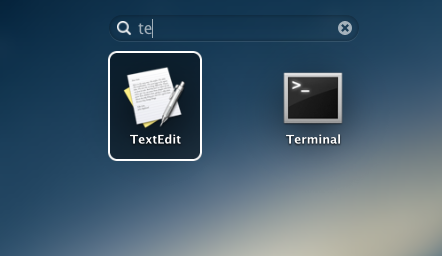
The Mountain Lion Finder, along with Lion additions like Launchpad and Mission Control, are at this point largely identical to their Lion counterparts. There are two obvious new features right now: first, Launchpad now includes a search box at the top of the window that lets you browse your installed apps. Compared to Spotlight, I find it to be of dubious usefulness, but I'm already on the record as finding the whole Launchpad concept to be of dubious usefulness - take my opinion as you will.
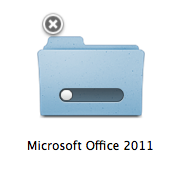
The other addition is also vaguely iOS-ish - you can cancel file copy operations in progress by clicking an X in the icon's upper left-hand corner (see above). Once a copy operation is complete, you delete the files by dragging them to the Trash just as before.
Safari 5.2
Safari 5.2, which is also currently available to developers as a beta for Lion, bumps the browser's WebKit version to 535.18.5, and brings with it some performance improvements and features. Features first: tabs now work as they do on the iPad, with each tab taking up an equal amount of space across the window - in Safari 5.1 and most other desktop browsers, new tabs are a fixed width (in both cases, the tabs begin to contract as you open more of them).
The address bar and search bar in the new Safari are also unified (as in Chrome and IE) - when you begin typing, the browser will search your default search engine, your bookmarks and history, and the content on the current page for matches. The Safari Reader button is now present to the right of the search/address bar at all times.
There's a new passwords manager in Safari that allows you to view and remove any stored user name/password combinations for websites you've visited. In the past this information was only accessible through the OS X Keychain but now it's available in both places.
Now, for performance - Safari 5.2 is measurably faster than Safari 5.1.3, and while it doesn't beat the latest stable versions of Firefox or Chrome in the tests below, the upgrade at least keeps Apple's default browser competitive. The problem is that this performance is a moving target - if Safari 5.2 doesn't launch before Mountain Lion's release this summer, both Mozilla and Google will have released several minor upgrades to their browsers that may help them pull even further ahead of Apple's latest. Interestingly enough the new Safari is actually faster than the latest stable build of Chrome in SunSpider but it loses everywhere else. Subjectively Safari feels fast but still not quite as fast as Chrome, although the two are much closer now.
These tests were run on a late 2010 MacBook Air, which runs a 1.6 GHz Core 2 Duo - please try to remember that before you laugh at any of these scores.
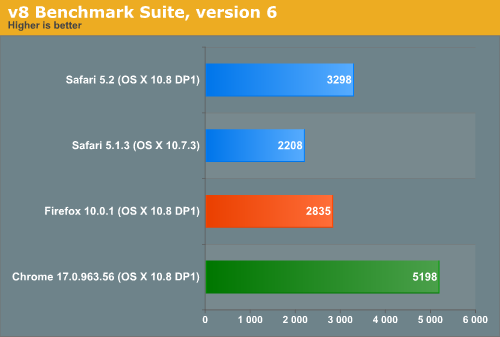
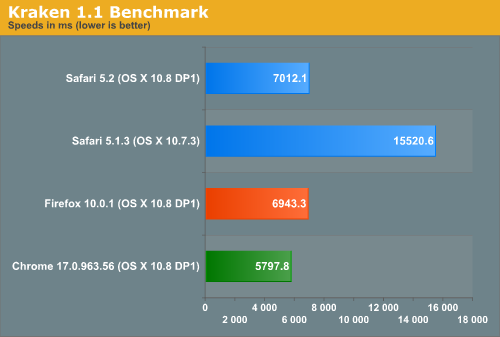
Apple Remote Desktop and Screen Sharing
The Apple Remote Desktop client in Mountain Lion has been updated to 3.6, which continues the years-long tradition of bumping the ARD version to support a new OS X release without adding enough fuctionality to justify a major version change. ARD gains IPv6 support and can now report information about batteries, trackpads, and Thunderbolt peripherals, but none of this fundamentally changes how the software works.
On a related note, Screen Sharing is made marginally more functional by the addition of controls at the top of the window - they don't really add anything that wasn't there, but they pull functionality that was previously hidden in menus and expose it to the user. Screen Sharing also supports drag-and-drop file sharing between connected computers, something previously limited to the full Apple Remote Desktop package.



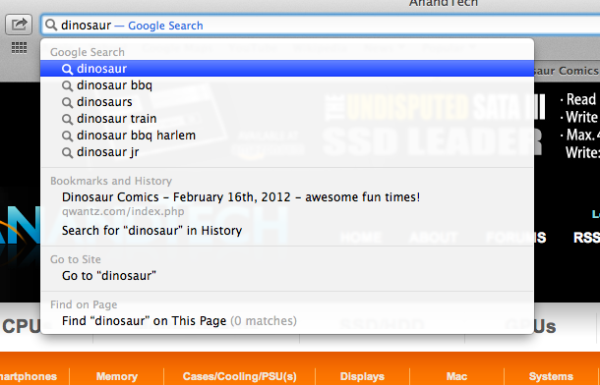
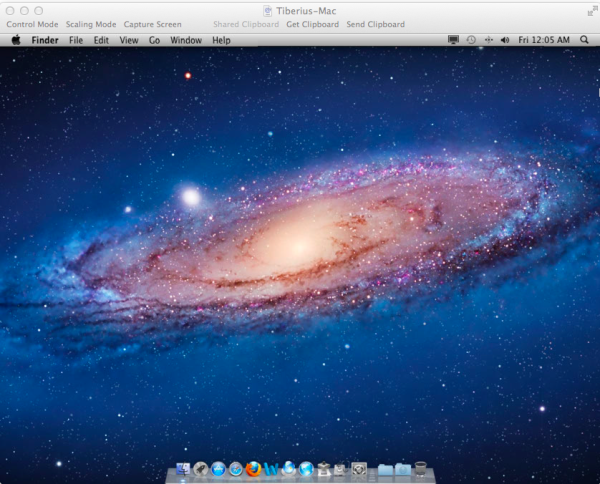








96 Comments
View All Comments
macuser2134 - Monday, February 20, 2012 - link
I have an important question about the Text-to-speech synthesizer that is included with OS X. Have they given it an independent volume control?This is coming from someone who is still on Snow Leopard. Whenever any 3rd party application invokes this feature - its always extremely lound at 100% the maximum volume. So unfortunately it never gets used for anything. But its such a great feature.
chemist1 - Tuesday, February 21, 2012 - link
My two principal concerns with the accelerated (yearly) release schedule are:1) In my experience, it takes nearly a year before each OSX release becomes fully useable -- i.e., it takes nearly a year before all my apps are updated, by the developers, to be *completely* compatible with the new OS (some of these are smaller developers with more limited resources), and likewise nearly a year before most of the bugs in the OS itself are worked out. So with the annual release schedule we lose that "sweet spot" second year when things are basically working well, and the OS and app developers can continue to refine and improve. Instead, all the focus will be redirected towards the new OS.
2) Consider the case of expensive software like Adobe CS. Typically, a given version of Adobe CS is good for the current Mac OS and the next two or so (=> about six years when releases are biannual) before one starts to run into compatibility issues and thus needs to upgrade. With releases coming out annually, might this not cut the longevity of such software in half? Indeed, wouldn't this be a problem for your apps generally?
MobiusStrip - Tuesday, February 21, 2012 - link
"The Mountain Lion Finder, along with Lion additions... are at this point largely identical to their Lion counterparts."Apple's failure to fix this pathetic piece of garbage they call Finder is just disrespectful to their users at this point. If there is a single foil for all of the breathless fawning over Apple's mythical design "elegance", Finder is it.
When you have a file browser that can't even sort its contents properly (with FOLDERS AT THE TOP), start searches in the selected folder, create subfolders in the selected folder, or present search results that show you WHERE each hit is... you have a failure.
Whatever happened to the much-ballyhooed "rewrite" of Finder for SnowLeopard (or was it Leopard)?
repoman27 - Wednesday, February 22, 2012 - link
I recognize that you're just trolling, and you don't appear to be a Mac user, but you do realize that the Finder already can do all of the things you listed? If you haven't been able to figure out how to do these things, the failure would seem to be a personal one and not on the part of the Finder.You seem very angry at Apple. Has Apple or its fans hurt you personally in some way?
Shinobi_III - Wednesday, February 22, 2012 - link
Since forever, Mac OS has looked exactly the same..And now a new OS version every year, for 100 bucks or whatnot?
These are basically just service packs, why is anyone even getting excited?
BTW, did they add cut/paste yet? lol
snouter - Thursday, February 23, 2012 - link
Apple will need to push/encourage 3rd parties to keep up with them.Adobe is notorious for taking their time with updates to newer Mac OSes.
Canon, only a few weeks ago released EOS Utility for Lion.
My Girlfriend bought some new $100 Samsung laser printer. No Lion drivers. I use dropbox to move files to my Windows computer so I can print them in 2012! There are CUPS hacks and stuff, but, meh.
So with Mountain Lion on the way, will Adobe CS6 be ready? Will I have to go a year waiting for Canon to upgrade EOS Utility? I guess in 2012, I can just forget about printing, lol.